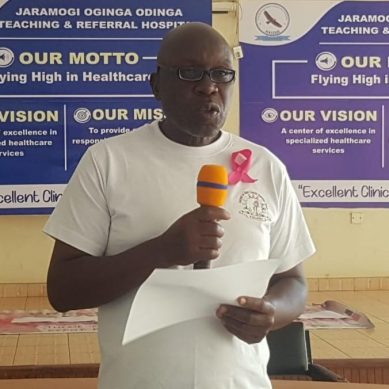
Barely a month after United States President Donald Trump announced radical changes in foreign funding that included freezing that has affected reproductive health in Kenya, the East African state announced plans to start production of its own condoms.
The announcement, which coincided with Valentine’s Day was made by Chief Executive Officer of the National Syndetic Diseases Control Council (NSDCC) Ruth Laibon Masha on February 13, 2025 during International Condoms Day celebration at Rongo University in Migori County.
US aid pause put pressure on the Kenyan government to take measures to maintain a leash on the spread of sexually transmitted diseases – including HIV/Aids, and unwanted pregnancies. According to State of World Population Report for 2022, nearly half of all pregnancies in Kenya are unintended and 60 per cent of them end up in unsafe abortion.
As Kenyans celebrate Valentine’s Day, an occasion has become synonymous with romance, the country faced the threat of condom shortages after the ministry said the country’s stock can last only six months unless the US resumes funding health programmes.
Consequently, this year, the government announced a ground-breaking move to start local production and distribution free condoms. The move is a significant step in the fight against HIV, sexually transmitted infections (STIs) and unintended pregnancies.
“Kenya is implementing a Total Market Approach to ensure that everyone – regardless of financial status – can access affordable condoms, including free public condoms for those unable to buy them,” Dr Masha stated.
This initiative aims to strengthen the supply chain, reduce reliance on imports, and ensure that condoms remain widely available across the country.
Observed annually on February 13, a day before Valentine’s Day, International Condoms Day serves as a reminder that while love is in the air, protection should be a priority. This year’s theme: ‘Vybe safely, just use it’, is a timely reminder and features the effectiveness of condoms in preventing unwanted pregnancies and STIs, including HIV.
The NSDCC, in partnership with county governments and other key partners, led celebrations in five counties: Nairobi, Kilifi, Laikipia, Bungoma, and Migori.
At Rongo University, students participated in interactive sessions, condom distribution drives and open discussions on safe sex practices. These engagements highlighted the crucial role of protection in preventing HIV, STIs, and unintended pregnancies.
Local condom production matters because despite widespread awareness, HIV and STI infections remain a pressing public health issue.
According to NSDCC data, over 1 million people contract STIs annually, globally, 80 million unintended pregnancies occur each year. In Kenya, 16,752 new HIV infections were recorded in 2023—a 60 per cent drop from 41,416 in 2019 and 73 per cent of new adult HIV infections last year were among young people aged 15-34.
Despite condoms being 98 per cent effective, Kenyans with multiple partners are still averse to them. The 2022 Kenya Demographic and Health Survey (KDHS) found that only 24.1 per cent of women and 45.4 per cent of men aged 15-49 who had two or more partners in the past year used a condom during their last sexual encounter.
“This is unacceptable despite the significant progress made in the fight against HIV,” Dr Masha said.
In 2022, Kenya pledged to increase the modern contraceptive prevalence rate for married women from 58 per cent to 64 per cent by 2030, according to the Ministry of Health. Kenya also plans to reduce unmet need for family planning for all women from 14 per cent to 10 per cent by 2030. The State of World Population report makes a strong case for abortion.
By producing condoms locally, Kenya will bridge the accessibility gap, ensuring protection is both convenient and affordable for all.
As couples exchange chocolates, flowers, and romantic gestures today, experts are urging Kenyans to also prioritise their health and safety. Dr Masha reminded Kenyans that safe sex is an act of love, care, and responsibility.
“This begins with the fundamental principles of abstinence, being faithful to a mutually faithful partner, and the correct and consistent use of condoms. Safe love equals smart choices” she said.
With Kenya now set to manufacture its own condoms, the government aims to enhance accessibility, affordability, and convenience for all.
So, as we celebrate love this Valentine’s Day, let’s also commit to loving responsibly – because protection is the greatest act of care, said the medic.
- A Tell / KNA report / By John Kariba







